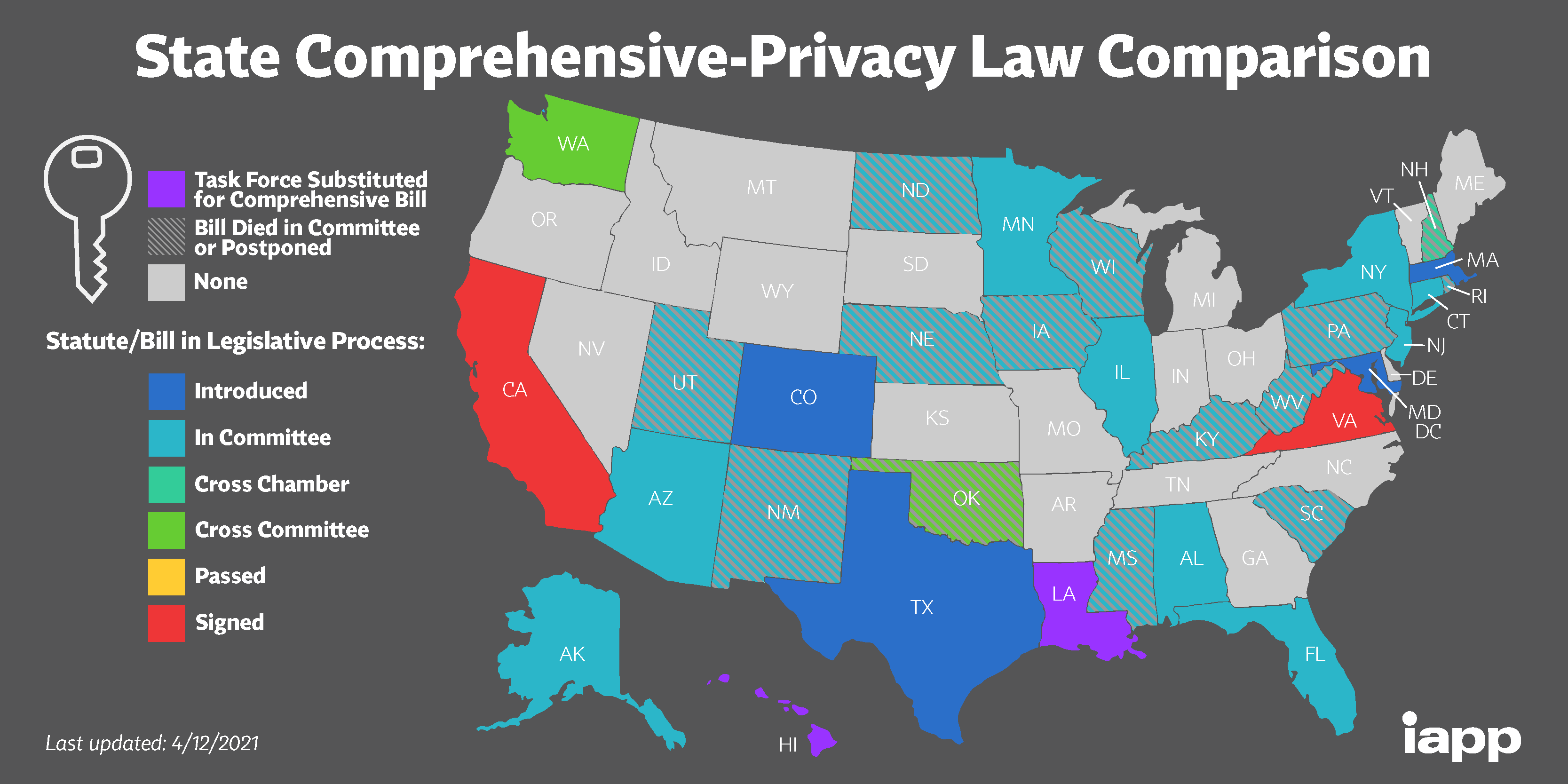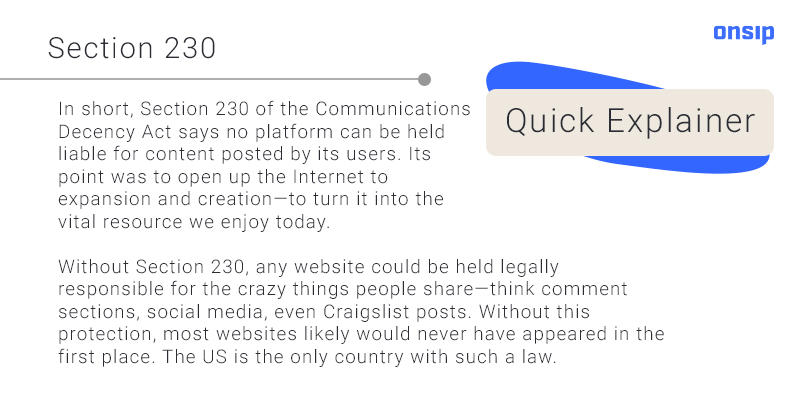When it comes to tech, the Biden administration has its work cut out for it. A federal data privacy act is arguably long overdue. Section 230 commanded headline attention in the weeks and months before the inauguration. More recently, the new infrastructure plan drummed up quite a bit of hoopla. All of these issues and more demand attention, even as the country continues trying to rein in the coronavirus pandemic.
So where do we stand and what types of legislation might we expect to see in the (hopefully) near future?
1) Data Privacy
There are many reasons we don’t have a federal stance on data privacy—but that doesn’t mean we shouldn’t. Such large-scale legislation isn’t unprecedented. The General Data Protection Regulation (GDPR) has an umbrella reach over the EU while also allowing for regional changes in individual countries. It’s not a stretch to imagine the same for the United States’ massive geographic span while still taking individual states’ rights into account.
Granted, there’s a trend here around laws that should exist at the federal level but don’t yet. Data privacy is a perfect example. It only takes one state to pass a law for more to follow in quick succession. Typically with tech legislation, California leads the way, which is no surprise considering the state is home to Silicon Valley. Many other states have followed California’s lead and passed individual data privacy laws. Now, after the California Consumer Protection Act (CCPA) went into effect in 2020, more states are moving toward more broad-based, comprehensive privacy laws.
There comes a point when enough states legalize something that the lack of a federal approach becomes egregious. With more than half the country working on comprehensive privacy legislation, we should expect the Biden administration to start development on a concrete national law.

2) Digital Divide
Despite its massive tech to-do list, the Biden administration has to prioritize the pandemic first. But some tech issues are directly linked to Covid and none more so than the digital divide. A year spent working and learning remotely put a floodlight on the extreme broadband deserts all over the States. So it’s no surprise that the first major plan from the administration focuses on infrastructure, including expanding broadband access to those without—although, as we noted in our recent blog explaining the digital divide, figuring out exactly who needs access is a problem all on its own.
3) Online Speech and Section 230 Reform
Did someone say Section 230? What a doozy of a bill it is, the one that shaped the Internet’s freedom. As important as it is, it’s in desperate need of a modern-day update—not unlike our telecommunications infrastructure, as noted in the digital divide commentary.

Section 230 is, ahem, a controversial debate to say the least. Said controversy is primarily why previous debates on updates have fizzled out. But after the events of January 2021, fueled by a previous president’s particular brand of online speech and his subsequent expulsion from various platforms, time is up. Section 230 needs an upgrade, although it is a tricky matter from a federal standpoint, as the law is tied to the First Amendment like a Celtic knot. The government cannot restrict freedom of speech. But it can force Big Tech to take responsibility for the power they wield. Which brings us to number four on this list:
4) Restraining Big Tech
By now, we’re used to seeing the Jack Dorseys and Mark Zuckerbergs of Big Tech on Capitol Hill, trying to explain their platforms and data collection. On the upside, we get to enjoy fresh memes with every round of testimony. On the downside, Big Tech has a history of arrogance and derision when talking to committees primarily made up of generations that typically need their childrens’ help setting up a smartphone. It’s a mess, no doubt about it. But between the rise of data privacy laws and the latest Section 230 ruckus, it’s irrefutable that Big Tech holds too much power and needs to be held accountable. How exactly that will happen remains to be seen.
5) International Technology Relations
Whatever your personal opinions on TikTok, the previous administration made it a problem that the new one has to deal with. And by “it” we mean technology based in other countries, specifically China tech. Although it has a ways to go to catch up with the US, China’s technology sector is gaining momentum. Alibaba even jumped ahead of Google in cloud rankings recently. None of this is bad, mind you—the industry could use some help avoiding a cloud oligopoly.
The main issue is that the Biden administration has to repair international relations in an era when collaboration is essential to continued technological development. Forgive the pun, but the concept of borders doesn’t exactly compute for modern tech. Like the PSTN, mobile networks are global, and collaboration is key to 5G development. That means working with other nations to innovate and continue a competitive edge. Granted, that’s easier said than done when any alliance is automatically seen as a curated chess move, like the recent agreement with Japan on 5G development. Either way, politics is confusing, especially when we try to apply borders to borderless technology (read: the Internet).
There’s a lot to unpack here, especially since so many of these matters overlap. 5G is both infrastructure and international. We have to stop Covid but also deal with the fallout of a fully remote year that further exposed massive holes in the country’s infrastructure. Big Tech’s social media platforms and the murky water around Section 230 may have calmed down since January, but it’s a matter of time before the fuse lights again. For a nation that’s home to the top cloud providers, we’re pretty low on the list when it comes to data privacy protections. To put it lightly, the Biden administration has a long road ahead of it. But we’ll take it as a good sign that the administration is already making strides before it’s six months old.

